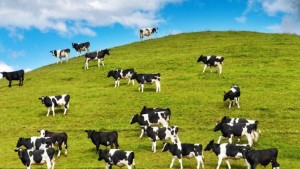Fonterra has confirmed there will be job losses as it heads towards reporting a massive loss at the end of the month.
The extent of the cuts is unclear, but a number of sources have confirmed to Stuff they have heard about the losses.
It is understood middle management positions are more likely to go than processing plant workers.
A Fonterra spokeswoman acknowledged there would be cuts but would not say how many. “We have been open with employees that with a new strategy comes a new structure. Our new strategy is about being more focused, prioritising New Zealand milk, and being closer to our customers.
READ MORE:
* Fonterra’s ‘skeletons uncovered’ as it predicts loss of $590-675m for year
* Fonterra loss of $196m its first ever, Spierings gets $8m farewell pay

“That means we will be changing our organisational structure to support our new strategy. It is premature to speculate on where in the organisation these changes may occur or how many roles may be impacted,” she said.
Do you know more? Email rebecca.stevenson@stuff.co.nz
Dairy Workers’ Union secretary Chris Flatt said milk would not stop coming, and workers were needed to process it.
The last time the dairy giant shed a large number of jobs was in 2015 when 750 staff were laid off. At the time it said the downsizing would bring about $100 million of savings.
Worldwide, New Zealand’s largest company has about 22,000 staff.
Last month Fonterra announced it would make an annual loss in the range of $590m to $675m, after making write downs of $820m to $860m. It was supposed to deliver the results on September 12, but has delayed that until the end of the month.
The Financial Markets Authority has also requested information from the dairy giant after receiving a complaint about the expected record annual loss and asset write-downs.
Recently, Fonterra said staff would not receive bonuses for this year, and those earning over $100,000 would not receive a pay rise next year.
Of those being paid over $100,000, 4035 are based in New Zealand and 1729 are overseas.

A source who Stuff has agreed not to name said Fonterra chairman John Monaghan had phoned him to tell him a large number of jobs would be shed. The farmer had earlier placed feedback on the Fonterra app.
The Waikato farmer said while it was good to see Fonterra addressing its problems, people at the top should be answerable for the situation it was in.
“Still no-one’s been held accountable.”
The company could blame former chief executive Theo Spierings, who has been replaced by Miles Hurrell, he said. “But John Monaghan was on the board and I confronted him, and he said ‘but we’ve got Miles on board now’.
“Miles is being put up as the saviour, but there’s no accountability on the board. They backed Theo, they gave him free licence,” the farmer said.
Fonterra shareholder and DairyNZ director Jacqueline Rowarth said the cuts were appropriate.
“They’ve lost billions of farmer assets. In meetings we’ve been asking how they have been valuing Beingmate so highly and asking for data since 2012 on which companies overseas were doing what – we’ve never had it.
“They’ve gone on saying everything is fine, but we’ve never thought that. At meetings I’ve been shouted at and told variously by [former chairman John] Wilson and Monaghan ‘you’re not to say any of this in public’,” Rowarth said.

Fonterra senior management and the board were due to go on investor roadshows next week, but Rowarth said she had now received notice the meetings were to be postponed.
She envisaged Fonterra’s consumer and foodservice business might have the biggest staff cuts.
“The whole China thing is a debacle, so if they’re getting out of China then people there could go. They’ve taken on vast numbers of people to do good stuff overseas and they haven’t been able to do that,” Rowarth said.
ASB analyst Nathan Penny said he did not know of any figures, but Fonterra was looking to save money and one place they would focus on was wages and salaries.
“So maybe there’s substance to the rumours, it wouldn’t surprise me.”




